Continue and Use Windows Rollback Lenovo Computer
Technical Level : Intermediate
Summary
NOTE: Please be aware the Windows.old folder located at the root of the local disk where Windows 11 or Windows 10 is installed will be deleted after 10 days automatically. The Windows.old folder is used to facilitate the rollback. So please perform any rollback within 10 days or this option will no longer be available. Otherwise, create a backup before upgrading to Windows 10.
Details
See links to resources about backing up by clicking the link for the respective version of Windows you are running: Windows XP , Windows Vista , Windows 7 , Windows 8/8.1
How to: Create a system image in Windows 10
If your Windows 10 installation is outside of the 10 day window, please review instructions for reinstalling Windows 8.1 or Windows 7 manually:
How to: Reinstall or Restore your original Windows installation after evaluating the Windows 10
Manually Downgrade to an older release of Windows 10:
If its been more than 10 days since upgraded, you will need to manually downgrade to your previous version of Windows 10.
Step 1: Download Windows 10 - see instructions in the following article how download and create a bootable copy:
Windows 10 Feature Update ISO Files Now Available for Download
NOTE: If you need to downgrade to earlier versions of Windows 10 such as 1511 or 1507, see instructions how to obtain those versions:
How to Download ISO Files or Reinstall Files for Older Versions of Windows 10
Step 2: Perform a custom install:
-
How to: Perform a custom installation of Windows
Step 3: Block the Windows Feature Update and future releases from automatically installing:
How to Block a Windows 10 Feature Update and Why You Might Need To
Since Windows 10, Microsoft has provided a welcome option to its recovery tools to make it easy to uninstall Windows 10 and go back to your previous version of Windows. This option can be handy for diagnostics purposes, trial and error or to simply go back to a previous version of Windows that works better with your PC.
Please keep in mind, this only works with Windows 7 and later. Because prior versions of Windows such as Windows Vista and Windows XP can only migrate to Windows 11 or Windows 10 through a custom install, the command line operations remain your best choice if you do decide to go back. Also keep in mind, if you do a custom install over Windows 7 or later, the Rollback option is not available. This only works if you had done an in place upgrade from Windows 7 or later.
Windows 11
Launch Settings app (Windows key + i) then click on System > Recovery
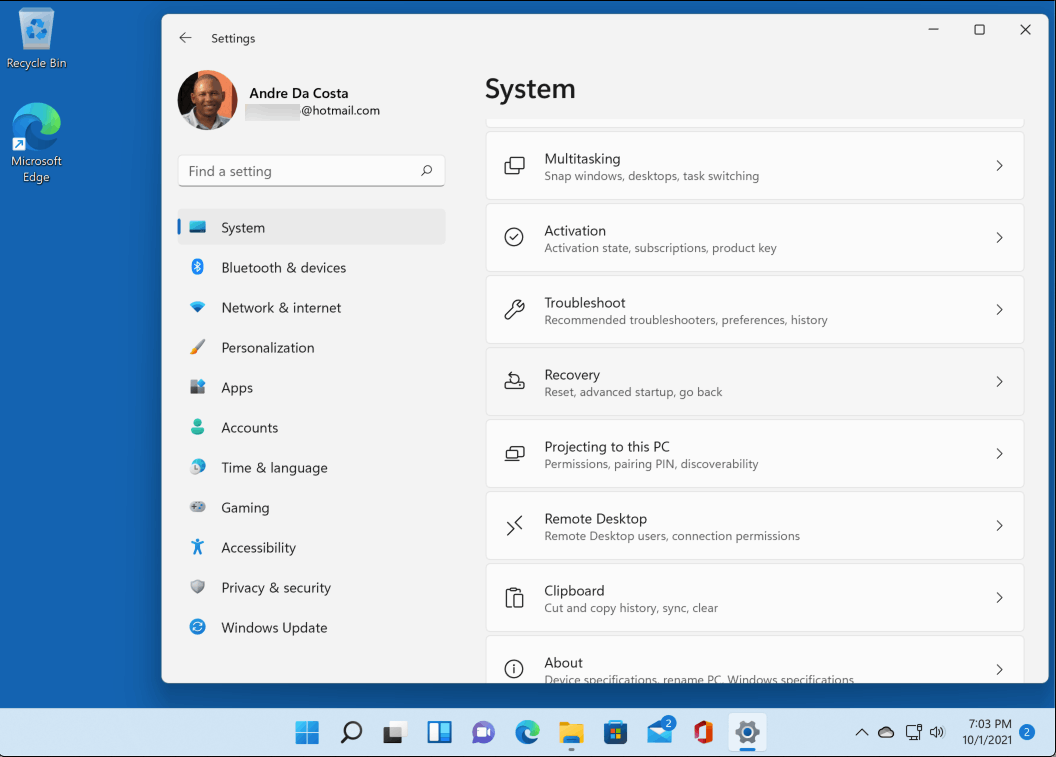
Click on Go Back
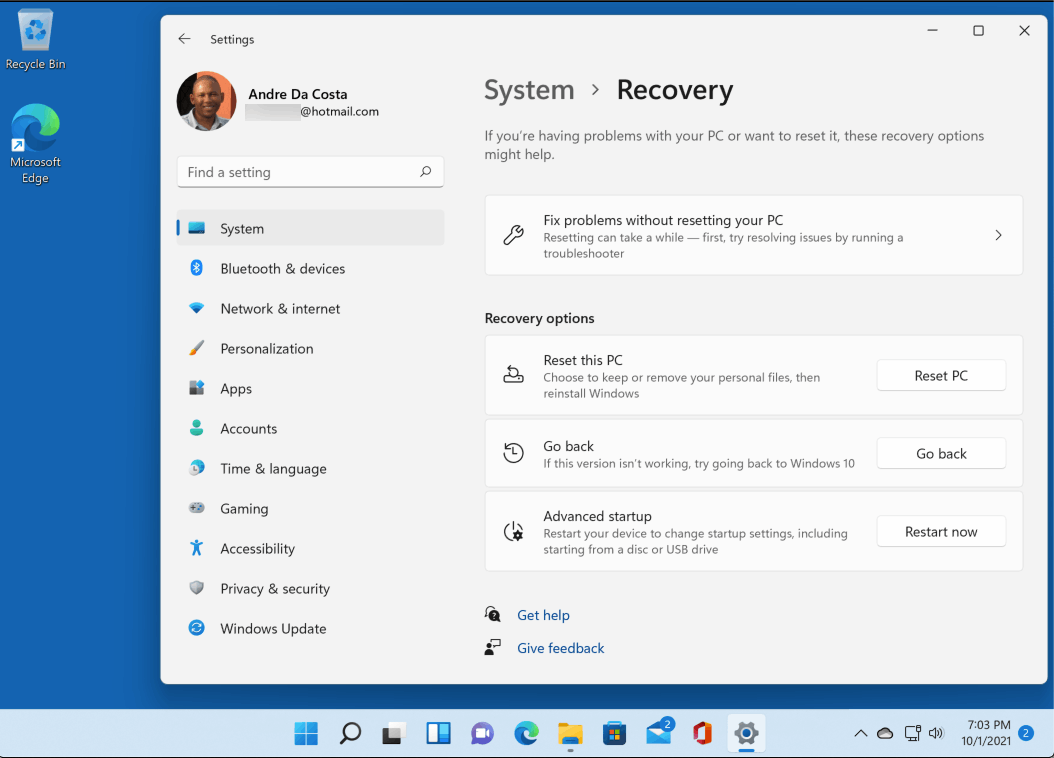
Wait while the Rollback wizard starts
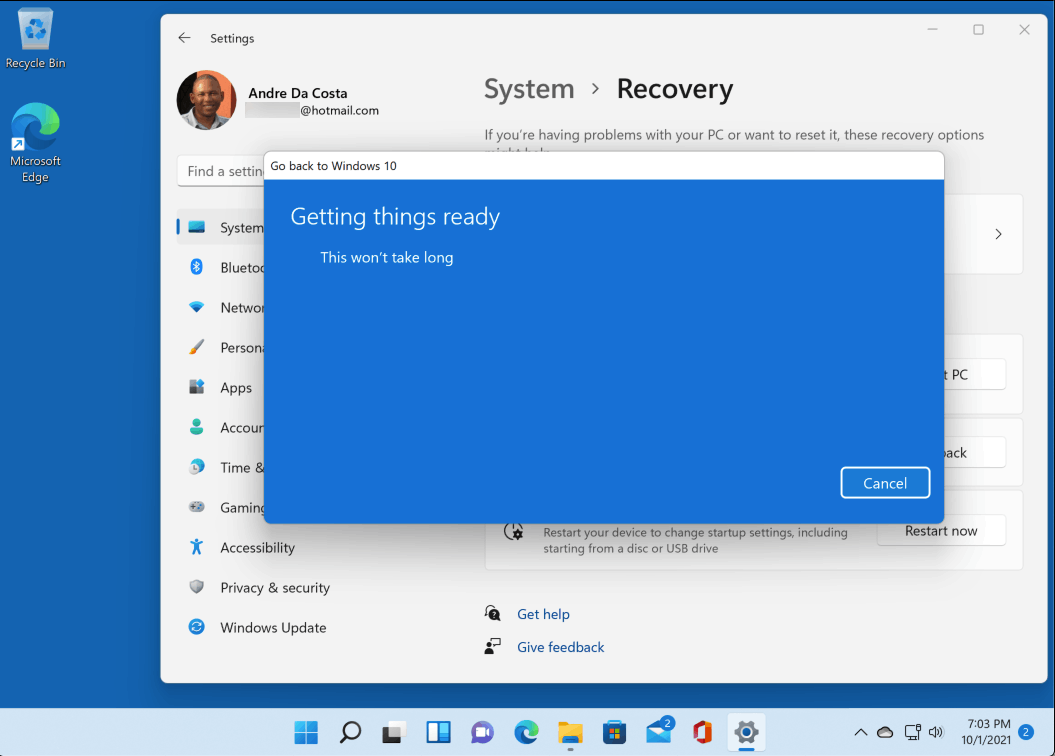
Here you can make multiple selections why are going back to your previous version of Windows along with additional details or you can choose just one and click Next.
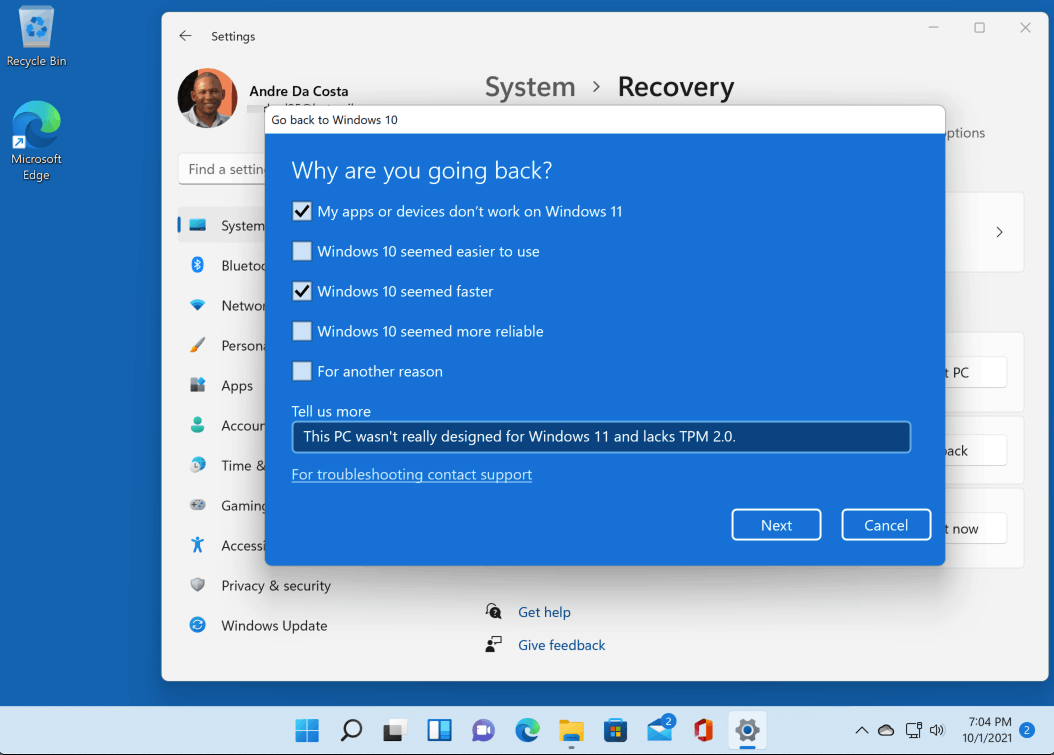
Windows 11 will offer you the option to check Windows Update, which might provide fixes to resolve issues with your current installation.
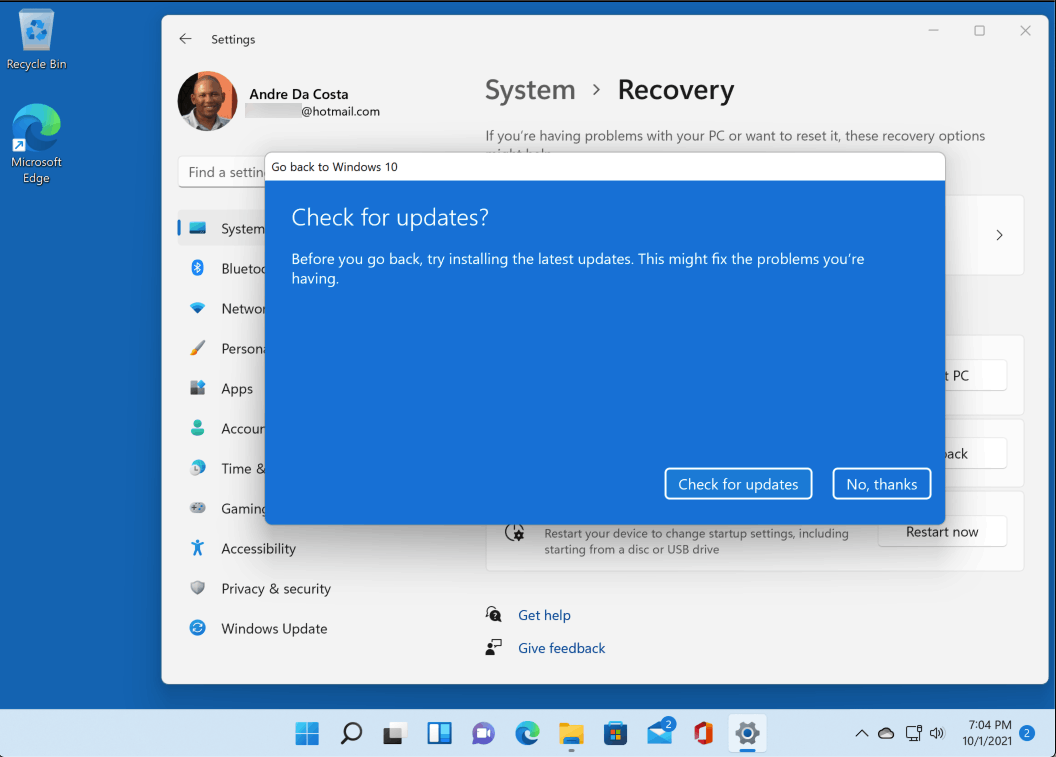
As noted, any configurations made to Windows 10 since upgrading will be lost, so if you installed new programs or hardware drivers or made personal settings, those will be deleted.
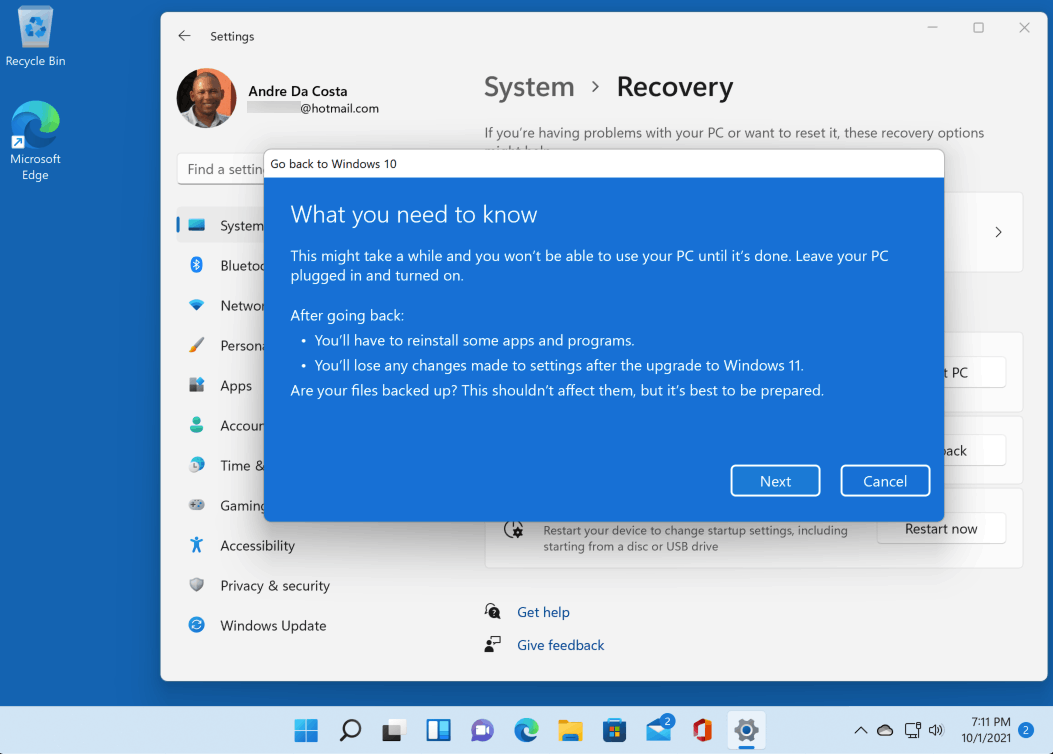
Make sure you have your password ready to sign into your old version if you had been using one. Click Next
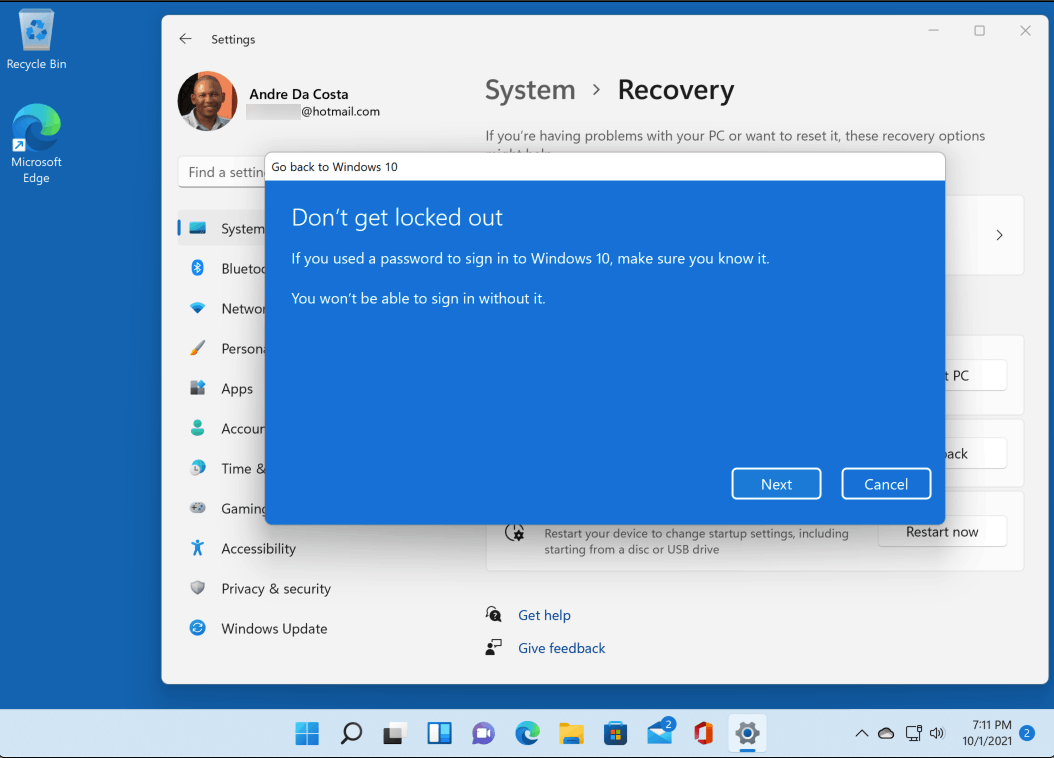
Click the Go back to Windows 10 button to begin the rollback process.
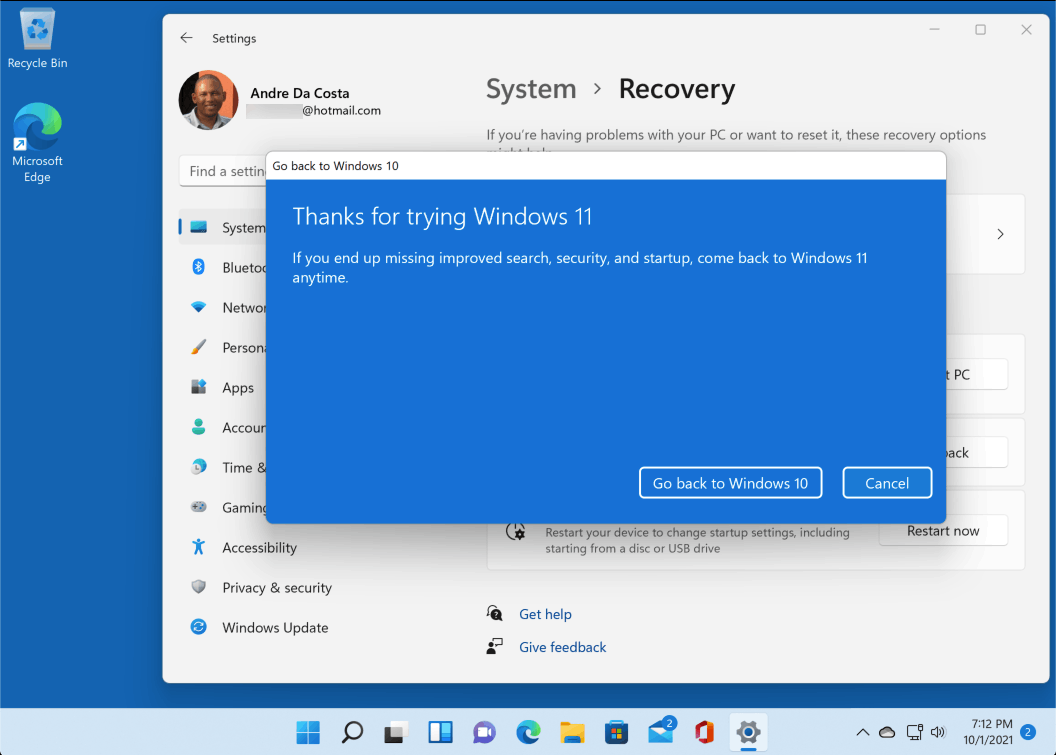
The process can take a while depending on the amount data, applications and settings.
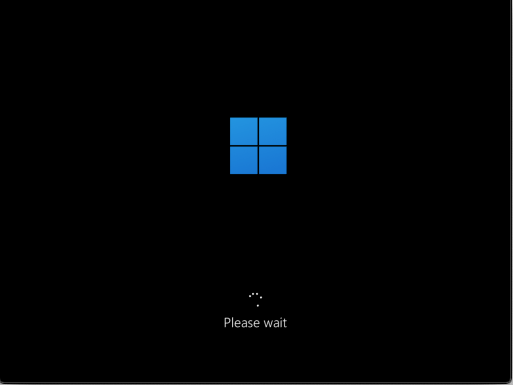
This will be your screen throughout the recovery process.
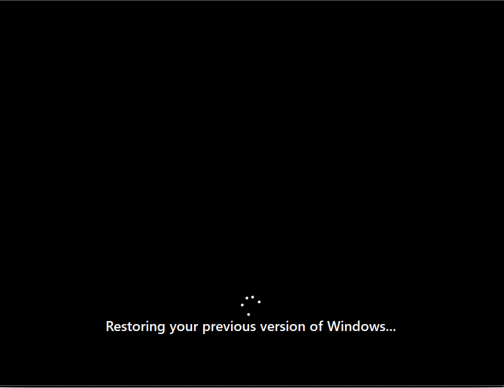
When the process is complete, you will be booted into your previous version of Windows environment.
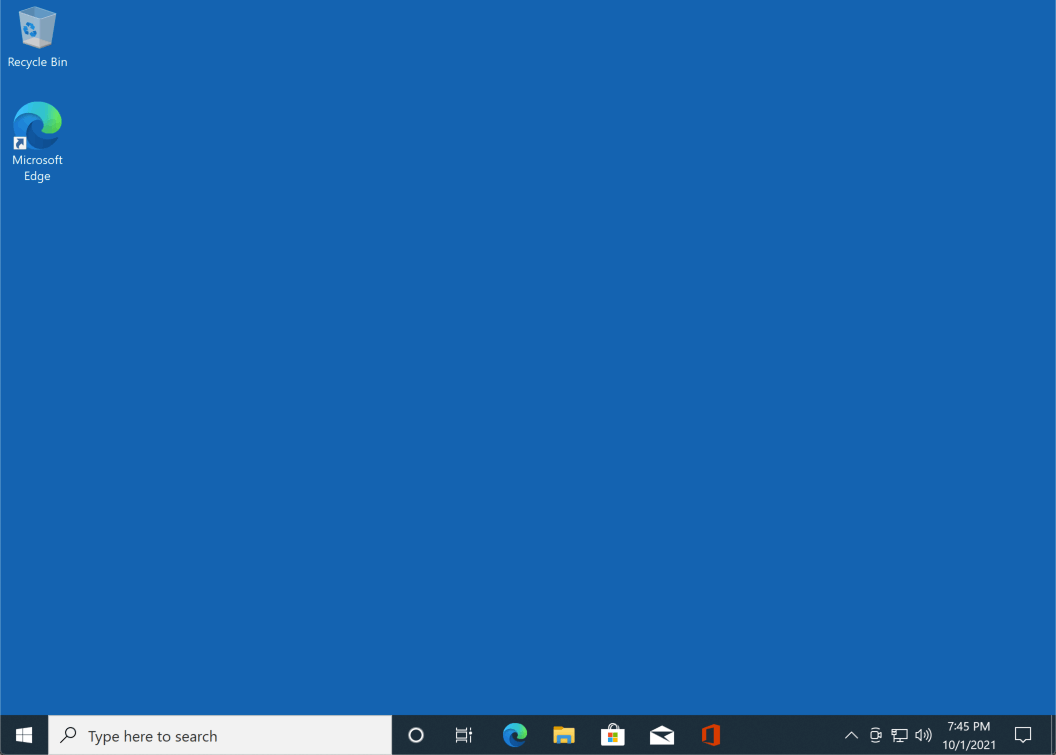
Windows 10

Start by opening Settings – Click Start > Settings or type Settings in the search bar and click it or press Windows key + i

Click Update and Security

Click Recovery then click Get started under Go back to Windows 7 or Windows 8/8.1 (depending on the previous version you running)

Here you can make multiple selections why are going back to your previous version of Windows along with additional details or you can choose just one and click Next.

As noted, any configurations made to Windows 10 since upgrading will be lost, so if you installed new programs or hardware drivers or made personal settings, those will be deleted.

Click Next

Make sure you have your password ready to sign into your old version if you had been using one. Click Next

The process can take a while depending on the amount data, applications and settings. Click Next

Click Go Back to begin the process.

Windows 10 will Restart

This will be your screen throughout the recovery process.

When the process is complete, you will be booted into your previous version of Windows environment.
If you cannot load the Windows Desktop, you can initiate a Rollback using the following method:

Log out
At the Sign In screen, hold down the shift key on your keyboard while clicking the Power button on the screen
Continue to hold down the shift key while clicking Restart
Continue to hold down the shift key until the Advanced Recovery Options menu appears

Click Troubleshoot

Click Advanced options

Click Go back to the previous version of Windows
Source: https://answers.microsoft.com/en-us/windows/forum/all/how-to-use-the-rollback-function-in-windows-11-or/3e9e5c2d-239f-488c-9f48-64a226302657
0 Response to "Continue and Use Windows Rollback Lenovo Computer"
Publicar un comentario